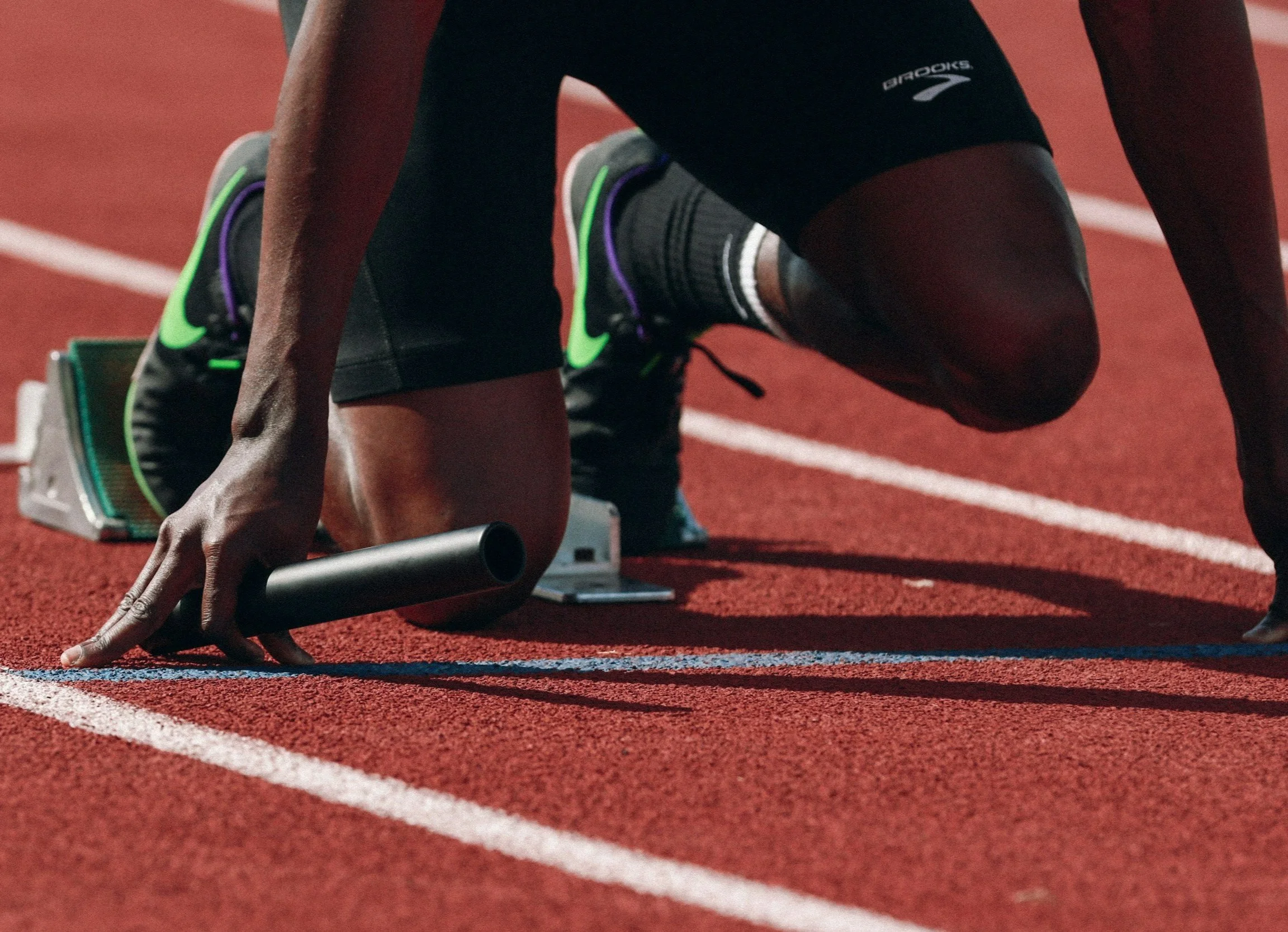🧠 Brain Gains: 12 Neuroscience Hacks Every College Athlete Should Know to Level Up Performance
Hey College Athletes!
You're not just training your muscles—you’re training your mind, too. Whether you're chasing a championship or trying not to faceplant during 6 a.m. practice, your brain is your secret weapon. 💥
Luckily, neuroscience (aka brain science!) has some wild and wonderful tricks up its sleeve to help you run faster, focus harder, and even recover quicker. Let’s break down 12 science-backed hacks to help you crush it on the field, court, mat, or track.
🧠 1. Use Mental Rehearsal Like a Pro
Hack: Visualize your moves before you make them.
✅ Science says that imagining a skill activates the same brain circuits as actually doing it (Guillot & Collet, 2008). That’s right—your neurons fire like it’s game time.
Try it: Before practice or a game, close your eyes and walk yourself through key plays, shots, or movements. Be vivid—smell the grass, hear the crowd.
🔁 2. Rewire Self-Talk with the “You Rule” Rule
Hack: Talk to yourself in the 2nd or 3rd person.
Instead of: “I’m nervous.”
Try: “You’ve got this—you’ve trained for this moment.”
✅ Research shows that using non-first-person self-talk creates emotional distance and better regulation under stress (Kross et al., 2014).
🛌 3. Nap Like an Olympian
Hack: Take a 20–30 minute nap before or after a workout.
✅ NASA found that a 26-minute nap improves alertness by 54% (Rosekind et al., 1995). Bonus: It boosts memory consolidation too.
Nap = neuro-hack + recovery mode. Game on.
💧 4. Hydrate Your Brain
Hack: Keep that water bottle full and flowing.
✅ Even mild dehydration can reduce cognitive function and mood (Ganio et al., 2011). And yes—your reaction time does get worse.
Drink water like it’s your job.
🍌 5. Fuel With Brain-Boosting Snacks
Hack: Add omega-3s, dark berries, and bananas to your snack lineup.
✅ Omega-3s = faster neural signaling. Bananas = potassium + glucose for fast energy. Berries = memory protectors (Gómez-Pinilla, 2008).
Snacks = performance fuel, not filler.
🧘 6. Activate the Vagus Nerve with Deep Breathing
Hack: Try 4-7-8 breathing (inhale 4, hold 7, exhale 8).
✅ This triggers your parasympathetic nervous system and calms stress (Jerath et al., 2006). A calm brain = better coordination + focus.
Bonus: It works before a big test or date, too.
🕺 7. Dance Breaks for Brain Reset
Hack: Move your body in fun, random ways between study sessions or drills.
✅ Rhythmic movement boosts dopamine, improves neuroplasticity, and resets attention (Brown et al., 2006).
Translation: Dancing = legit brain upgrade.
🔥 8. Cold Exposure for Grit Training
Hack: Take a cold shower or finish your shower cold for 30 seconds.
✅ This activates noradrenaline and increases mental resilience (Kox et al., 2014). Your brain learns to tolerate discomfort = you become unshakable.
Try it post-workout. Thank us (or scream) later.
🎯 9. Name It to Tame It
Hack: When you’re overwhelmed, label your emotion.
✅ Brain scan studies show that naming emotions reduces activity in the amygdala (your fear center) and boosts regulation via the prefrontal cortex (Lieberman et al., 2007).
“I’m feeling pressure” is stronger than “I’m freaking out.”
⏱️ 10. Use a Pre-Performance Ritual
Hack: Do the same simple routine before you play—every time.
✅ Neuroscience calls this “chunking”—your brain links the ritual with performance readiness (Graybiel, 2008). Rituals = stability under pressure.
Steph Curry chews his mouthguard. What’s your move?
💡 11. Train in Tiny Bites for Long-Term Skill
Hack: Practice in short, spaced-out sessions (aka “spaced repetition”).
✅ This strengthens long-term motor memory (Kantak & Winstein, 2012). 3 sessions of 10 minutes > 1 session of 30 minutes.
Brains like small bites—go snack on skills.
😴 12. Get 7–9 Hours of Sleep—Seriously
Hack: Treat sleep like it's part of your training plan.
✅ During deep sleep, your brain literally replays muscle memories and repairs tissue (Walker, 2008). Sleep-deprived athletes react slower and get injured more often.
More Zzzs = more Ws. 💤🏆
🏁 Final Thoughts: Brains Win Games
Your mental game is your biggest advantage, and neuroscience is here to help you win it.
You don’t need to meditate for hours or eat weird mushrooms (please don’t). These 12 brain-based hacks are easy, free, and freakishly effective. Try one or two this week and see how your game changes—on and off the field.
Let your brain be your MVP. 🧠💪🔥
🧠 Citations
Guillot, A., & Collet, C. (2008). Construction of the motor imagery integrative model in sport: a review and theoretical investigation. International Review of Sport and Exercise Psychology, 1(1), 31–44.
Kross, E., et al. (2014). Self-talk as a regulatory mechanism: how you do it matters. Journal of Personality and Social Psychology, 106(2), 304.
Rosekind, M. R., et al. (1995). Crew factors in flight operations: Operational errors and fatigue. NASA Ames Research Center.
Ganio, M. S., et al. (2011). Mild dehydration impairs cognitive performance and mood. Nutrition Reviews, 69(suppl_2), S55–S59.
Gómez-Pinilla, F. (2008). Brain foods: the effects of nutrients on brain function. Nature Reviews Neuroscience, 9(7), 568–578.
Jerath, R., et al. (2006). Physiology of long pranayamic breathing. Medical Hypotheses, 67(3), 566–571.
Brown, S., et al. (2006). The neural basis of human dance. Cerebral Cortex, 16(8), 1157–1167.
Kox, M., et al. (2014). Voluntary activation of the sympathetic nervous system and attenuation of the innate immune response in humans. PNAS, 111(20), 7379–7384.
Lieberman, M. D., et al. (2007). Putting feelings into words. Psychological Science, 18(5), 421–428.
Graybiel, A. M. (2008). Habits, rituals, and the evaluative brain. Annual Review of Neuroscience, 31, 359–387.
Kantak, S. S., & Winstein, C. J. (2012). Learning–performance distinction and memory processes for motor skills. Motor Control, 16(1), 24–42.
Walker, M. P. (2008). The role of sleep in cognition and emotion. Annals of the New York Academy of Sciences, 1156(1), 168–197.
